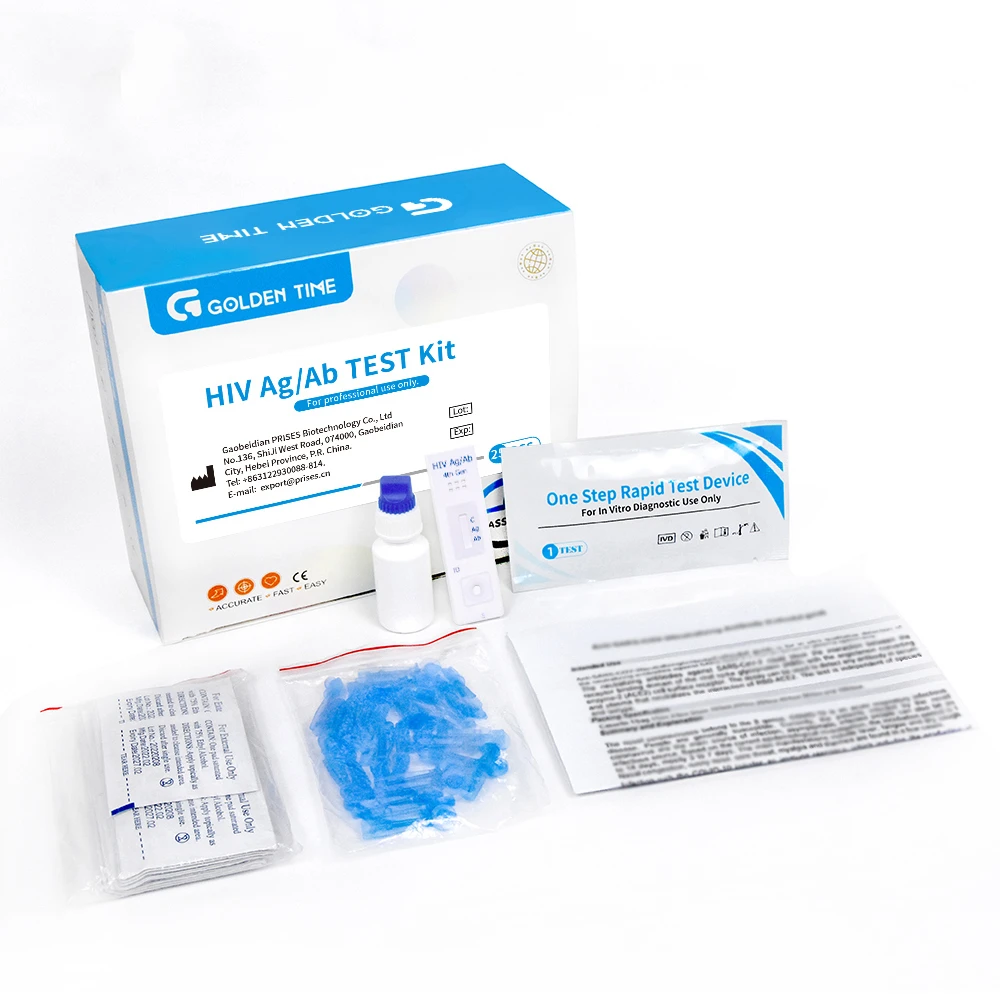Jan . 15, 2025 03:14 Back to list
hiv ab/ag gen blood rapid test kit
The advancements in medical technology have always been a cornerstone of improving public health, and one of the most significant leaps in recent years is the development of 4th generation HIV test kits. These cutting-edge testing tools have revolutionized the way HIV is diagnosed and managed, offering a blend of precision, early detection, and reliability that makes them essential in the fight against HIV/AIDS.
In terms of trustworthiness, 4th generation HIV test kits are backed by endorsements from major health organizations, including the World Health Organization (WHO) and the Centers for Disease Control and Prevention (CDC). These endorsements are a testament to the well-established credibility of these test kits, as such organizations only provide support for diagnostics that have been proven effective and reliable through comprehensive evaluation. The widespread implementation of 4th generation HIV test kits marks a significant step forward in global health efforts, particularly in places where access to early and reliable testing is critical. They are an indispensable tool for healthcare providers managing at-risk populations and for individuals seeking proactive management of their health. In summary, for anyone involved in healthcare provision, or individuals concerned about HIV exposure, 4th generation HIV test kits represent an advanced, trustworthy solution that is vital for effective disease control and prevention. Their ability to deliver rapid and accurate results, coupled with their authoritative positions in the field of diagnostics, makes them an unmatched resource for combating the HIV epidemic.


In terms of trustworthiness, 4th generation HIV test kits are backed by endorsements from major health organizations, including the World Health Organization (WHO) and the Centers for Disease Control and Prevention (CDC). These endorsements are a testament to the well-established credibility of these test kits, as such organizations only provide support for diagnostics that have been proven effective and reliable through comprehensive evaluation. The widespread implementation of 4th generation HIV test kits marks a significant step forward in global health efforts, particularly in places where access to early and reliable testing is critical. They are an indispensable tool for healthcare providers managing at-risk populations and for individuals seeking proactive management of their health. In summary, for anyone involved in healthcare provision, or individuals concerned about HIV exposure, 4th generation HIV test kits represent an advanced, trustworthy solution that is vital for effective disease control and prevention. Their ability to deliver rapid and accurate results, coupled with their authoritative positions in the field of diagnostics, makes them an unmatched resource for combating the HIV epidemic.
Latest news
-
Dengue NS1 Rapid Diagnostic Test Kit
NewsMar.07,2025
-
Dengue NS1 Rapid Diagnostic Test Kit
NewsMar.07,2025
-
Dengue NS1 Rapid Diagnostic Test Kit
NewsMar.07,2025
-
Transferrin Rapid Test Cassette Tumor Marker TF Card
NewsMar.07,2025
-
Malaria Pf Pan Rapid Diagnostic Test Kit
NewsMar.07,2025
-
malaria pf / pan ag rapid test
NewsMar.07,2025

